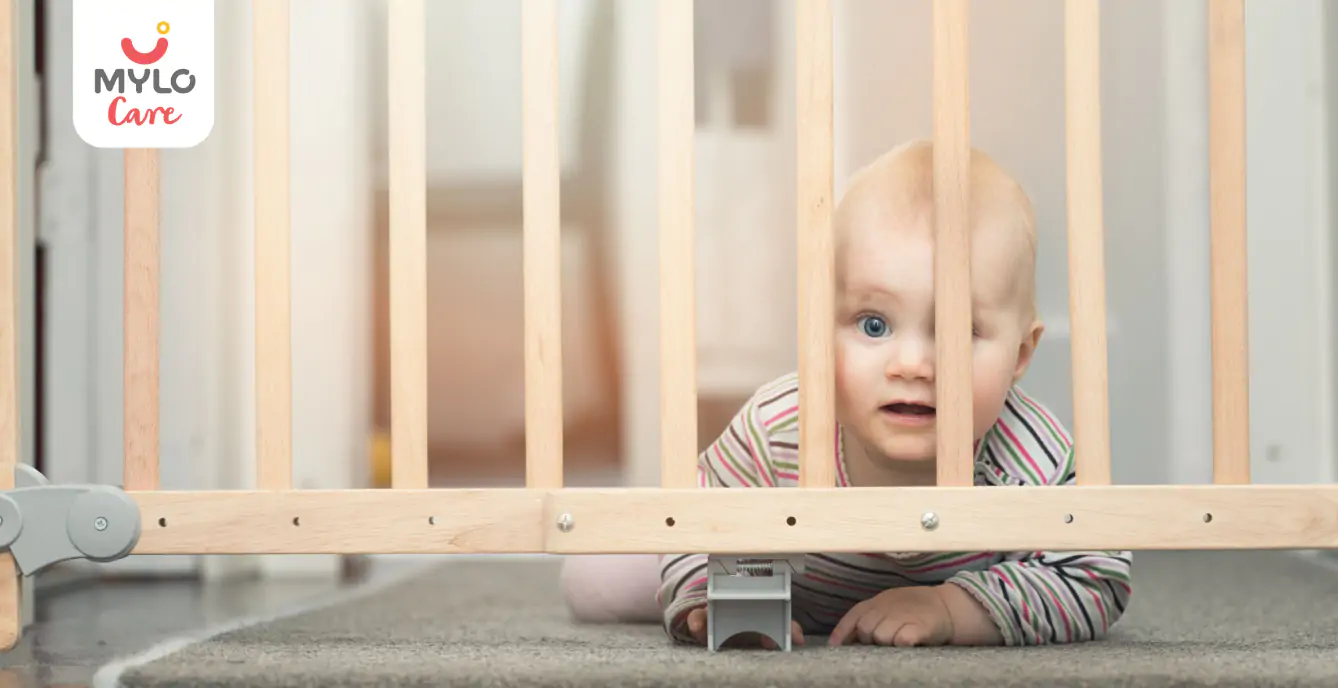Home

How to Make IVF Successful the First Time: Understanding Success Rates & Factors
In this Article

Pregnancy
How to Make IVF Successful the First Time: Understanding Success Rates & Factors
Updated on 18 July 2023



Medically Reviewed by
Kusum Sabharwal
Obstetrician & Gynecologist - MBBS| DGO
View Profile

Roohi and Rahul had always dreamt of starting their own family, but fertility challenges prevented their dreams from coming true. But when God closes one door, he opens a window. And In-vitro Fertilization (IVF) was no less than a remarkable window of hope for them. But the path to parenthood wasn’t easy still- success rates, factors, treatments – it was a lot to take in! And thus began their quest on how to make IVF successful the first time.
From understanding the crucial factors that play a role in IVF to the success rate of IVF first time, we will understand all these aspects. What’s more, we will also take into account why IVF fails first time and how you can avoid it in order to maximize your chances of a successful pregnancy. Get ready to embark on a path of hope, discovery, and new beginnings!
What is the Success Rate of IVF First Time?
Let us try to break down IVF success rate in first attempt on the basis of singleton births (the birth of one child per IVF cycle) and non-singleton births (twins, triplets or higher) as per different age ranges.
For singletons the percentage of live births per egg retrieval is as follows:
Below 35 years old: 41.6%
35-37 years old: 29.6%
38-40 years old: 18.7%
41-42 years old: 9.2%
Over42 years old: 2.8%
For all live births, including singletons and non-singletons using patient’s own eggs, the success rates are as follows:
Below 35 years old: 44.6%
35-37 years old: 31.5%
38-40 years old: 19.9%
41-42 years old: 9.7%
Over 42 years old: 2.9%
When it comes to the success rate of IVF first time in India, the number lies between 30-35% for women below the age of 35 years.
You may also like: After How Many Weeks IVF Pregnancy Is Safe: Understanding The Ideal Timeline
What are the Factors Affecting IVF Success Rate in First Attempt?
In order to understand how to make IVF successful the first time, it’s important to understand the factors that affect the success rates of IVF. These include:
1. Age of the Woman
Age is one of the most critical factors affecting IVF success. Younger women generally have better-quality eggs, which are more likely to result in successful fertilization and embryo development. As a woman's age increases, the quantity and quality of her eggs decline, reducing the chances of a successful pregnancy.
2. Embryo Quality
The quality of the embryos created during the IVF process plays a crucial role. High-quality embryos are more likely to implant successfully in the uterus and result in a viable pregnancy. Embryo quality is determined by factors such as the appearance of the embryos under the microscope, their developmental stage, and their genetic health.
3. Underlying Cause of Infertility
The reason for infertility can impact IVF success. Some infertility issues, such as ovulation disorders or male factor infertility, may respond well to IVF treatment. However, certain conditions like severe uterine abnormalities or advanced age-related fertility decline may reduce the chances of success.
4. Lifestyle Factors
Lifestyle choices can also influence IVF success. Factors such as smoking, excessive alcohol consumption, obesity, and a poor diet can negatively affect fertility and the success of IVF. Maintaining a healthy lifestyle can optimize the chances of a successful outcome.
5. Fertility Clinic Expertise
The experience and expertise of the fertility clinic and its medical team play a significant role in IVF success. Well-established clinics with experienced fertility specialists and embryologists tend to have higher success rates. These professionals can tailor the treatment approach to individual needs, increasing the chances of a successful pregnancy.
It's important to note that IVF success is a complex interplay of various factors, and individual circumstances can vary greatly. Couples undergoing IVF should have a detailed discussion with their fertility specialist to assess their unique situation and receive personalized guidance to optimise their IVF success rate in first attempt.
Why IVF Fails First Time?
Couples opting for IVF may not always succeed on the first attempt. Several reasons can contribute to failed first IVF attempt such as:
1. Embryo Quality Issues
One of the main reasons for IVF failure is embryo-related problems. Even though the embryos may look viable, they might have chromosomal abnormalities or other developmental issues that prevent successful implantation or lead to early pregnancy loss.
2. Implantation Failure
Successful IVF requires the embryo to implant into the uterine lining properly. Sometimes, the embryo may not implant adequately due to issues with the uterine lining, immune system factors, or other underlying conditions, leading to IVF failure.
3. Underlying Health Conditions
Certain medical conditions, such as polycystic ovary syndrome (PCOS), endometriosis, or uterine abnormalities, can negatively impact IVF success. These conditions may affect egg quality, hormonal balance, or the ability of the uterus to support implantation.
4. Age of the Woman
As mentioned earlier, a woman's age significantly affects IVF success. Older women, especially those over 35, have a reduced ovarian reserve and poorer egg quality, which can decrease the chances of successful fertilization, implantation, and healthy pregnancy.
5. Lifestyle Factors
Lifestyle choices can also affect IVF outcomes. Factors like smoking, excessive alcohol consumption, obesity, and stress can adversely influence fertility and reduce the chances of successful IVF.
It's crucial to remember that IVF success is not always immediate, and multiple factors may come into play. The journey to parenthood through IVF can involve several attempts before achieving a successful pregnancy.
How to Make IVF Successful the First Time?
Increasing the success rate of IVF first time involves a combination of lifestyle choices and medical strategies. Here are eight ways to boost your odds:
1. Pre-IVF Health Optimization
Prior to starting IVF, focus on optimizing your overall health. Maintain a nutritious diet, exercise regularly, and reduce stress. Avoid smoking, consuming alcohol, and recreational drugs, as they can negatively impact fertility.
2. Undergo Comprehensive Fertility Testing
Complete fertility testing before starting IVF. This includes assessing hormone levels, evaluating egg quality, and conducting sperm analysis. Identifying any underlying issues will help the medical team tailor the treatment plan accordingly.
3. Consider Genetic Testing
Preimplantation Genetic Testing (PGT) can be beneficial, especially for couples with a history of genetic disorders or advanced maternal age. PGT can identify chromosomally healthy embryos for transfer, improving the chances of a successful pregnancy.
4. Choose a Reputable Fertility Clinic
Research and select a well-established fertility clinic with experienced specialists and a track record of successful IVF outcomes. A reputable clinic will provide personalized care and the latest advancements in reproductive technology.
5. Optimize Ovulation Stimulation
Ovulation stimulation is a critical step in IVF. Work closely with your doctor to determine the ideal medication protocol for stimulating egg production. Proper monitoring ensures the collection of mature and high-quality eggs.
6. Individualized Embryo Transfer
Discuss with your fertility specialist the appropriate number of embryos to transfer. Transferring too many embryos can lead to multiple pregnancies, which carry higher risks. On the other hand, transferring too few embryos might reduce the chances of success.
7. Endometrial Preparation
Ensure the uterus is adequately prepared to receive the embryos. Your doctor may suggest hormone supplementation or other techniques to optimize the uterine lining for successful implantation.
8. Emotional Support and Mindfulness
IVF can be emotionally taxing. Seek support from loved ones, join support groups, or consider counseling. Reducing stress through mindfulness techniques like meditation and yoga can positively impact fertility.
You may also like: Sleeping Position After IVF & Other Precautions That Can Boost Your Chances of Success
FAQs
1. Does IVF usually fail first time?
IVF can fail on the first attempt, but it varies for each individual. Success rates depend on factors such as the woman's age, underlying infertility causes, embryo quality, and overall health. While some may achieve success in the first round, others may need multiple attempts.
2. What to do after first failed IVF?
After a first failed IVF, it's essential to seek guidance from your fertility specialist. They will review the cycle and may recommend changes to the treatment plan based on any insights gained. Take time to emotionally recover, consider counseling if needed, and discuss any lifestyle adjustments.
3. What are the signs of successful IVF?
Signs of successful IVF may include early pregnancy symptoms such as implantation bleeding, breast tenderness, mild cramping, and nausea. Around two weeks after embryo transfer, a blood test can confirm rising hCG hormone levels, indicating pregnancy.
The Bottomline
In conclusion, embarking on the journey of IVF can be a transformative experience filled with hope and possibilities. Understanding the key factors influencing IVF success rates empowers individuals and couples to make informed decisions on how to make IVF successful the first time. While there are no guarantees, the combination of expert medical guidance, lifestyle optimization, and emotional support lays the groundwork for a rewarding IVF journey, bringing dreams of parenthood closer to reality.
References
- Dabbagh Rezaeiyeh R, Mehrara A, Mohammad Ali Pour A, Fallahi J, Forouhari S. (2022). Impact of Various Parameters as Predictors of The Success Rate of In Vitro Fertilization. Int J Fertil Steril.
- All SART Member Clinics. (2020). Final National Summary Report for 2020. SART
- Eskew AM, Jungheim ES. (2017). A History of Developments to Improve in vitro Fertilization. Mo Med.





Medically Reviewed by
Kusum Sabharwal
Obstetrician & Gynecologist - MBBS| DGO
View Profile


Written by
Ravish Goyal
Official account of Mylo Editor
Read MoreGet baby's diet chart, and growth tips

Related Articles
Related Questions
Hello frnds..still no pain...doctor said head fix nhi hua hai..bt vagina me pain hai aur back pain bhi... anyone having same issues??

Kon kon c chije aisi hai jo pregnancy mei gas acidity jalan karti hain... Koi btayega plz bcz mujhe aksar khane ke baad hi samagh aata hai ki is chij se gas acidity jalan ho gyi hai. Please share your knowledge

I am 13 week pregnancy. Anyone having Storione-xt tablet. It better to have morning or night ???

Hlo to be moms....i hv a query...in my 9.5 wk i feel body joint pain like in ankle, knee, wrist, shoulder, toes....pain intensity is high...i cnt sleep....what should i do pls help....cn i cosult my doc.

Influenza and boostrix injection kisiko laga hai kya 8 month pregnancy me and q lagta hai ye plz reply me

Related Topics
RECENTLY PUBLISHED ARTICLES
our most recent articles

Lactose Intolerance
Lactose Intolerance in Babies: A Parent’s Guide to Identifying and Managing it

Medical Procedures
TESA IVF: How This Procedure Can Help You Achieve Your Dream of Parenthood

Sensory Development
How Can You Encourage Sensory Play for Your Baby and What are Its Benefits?

IVF Pregnancy
After How Many Weeks IVF Pregnancy Is Safe: Understanding The Ideal Timeline

Exploring the Senses: 9 Incredible Benefits of Sensory Play for Your Child's Development

Childproofing
The Ultimate Guide to Childproofing Your Home
- Start Their Love for Reading Early: The Best Books for Baby's First Library
- CMPA (Cow's Milk Protein Allergy): Identifying Symptoms and Understanding Treatment
- Birth Control Options While Breastfeeding: Balancing Parenthood and Contraception
- Period During Breastfeeding What Every New Mother Should Know
- Role of Stories and Rhymes in Your Baby’s Brain Development
- Intracytoplasmic Sperm Injection (ICSI) How It Can Help Treat Male Infertility
- Baby Sleeping While Breastfeeding: Understanding the Causes and Solutions
- Lump in Breast During Breastfeeding How to Identify, Treat, and Prevent Lump Formation
- Understanding Down Syndrome: A Comprehensive Guide for Parents
- Lactation Failure: A Comprehensive Guide to Understanding the Causes and Solutions
- Breast Pain During Pregnancy: What to Expect and How to Find Relief
- Baby Spit Up: The Ultimate Guide to Causes, Prevention, and Management
- Unexplained Infertility: Breaking Down the Factors and Finding Solutions
- Mulethi: Unraveling the Therapeutic Potential of Licorice Root for Your Overall Health


AWARDS AND RECOGNITION

Mylo wins Forbes D2C Disruptor award

Mylo wins The Economic Times Promising Brands 2022
AS SEEN IN

- Mylo Care: Effective and science-backed personal care and wellness solutions for a joyful you.
- Mylo Baby: Science-backed, gentle and effective personal care & hygiene range for your little one.
- Mylo Community: Trusted and empathetic community of 10mn+ parents and experts.
Product Categories
baby carrier | baby soap | baby wipes | stretch marks cream | baby cream | baby shampoo | baby massage oil | baby hair oil | stretch marks oil | baby body wash | baby powder | baby lotion | diaper rash cream | newborn diapers | teether | baby kajal | baby diapers | cloth diapers |




